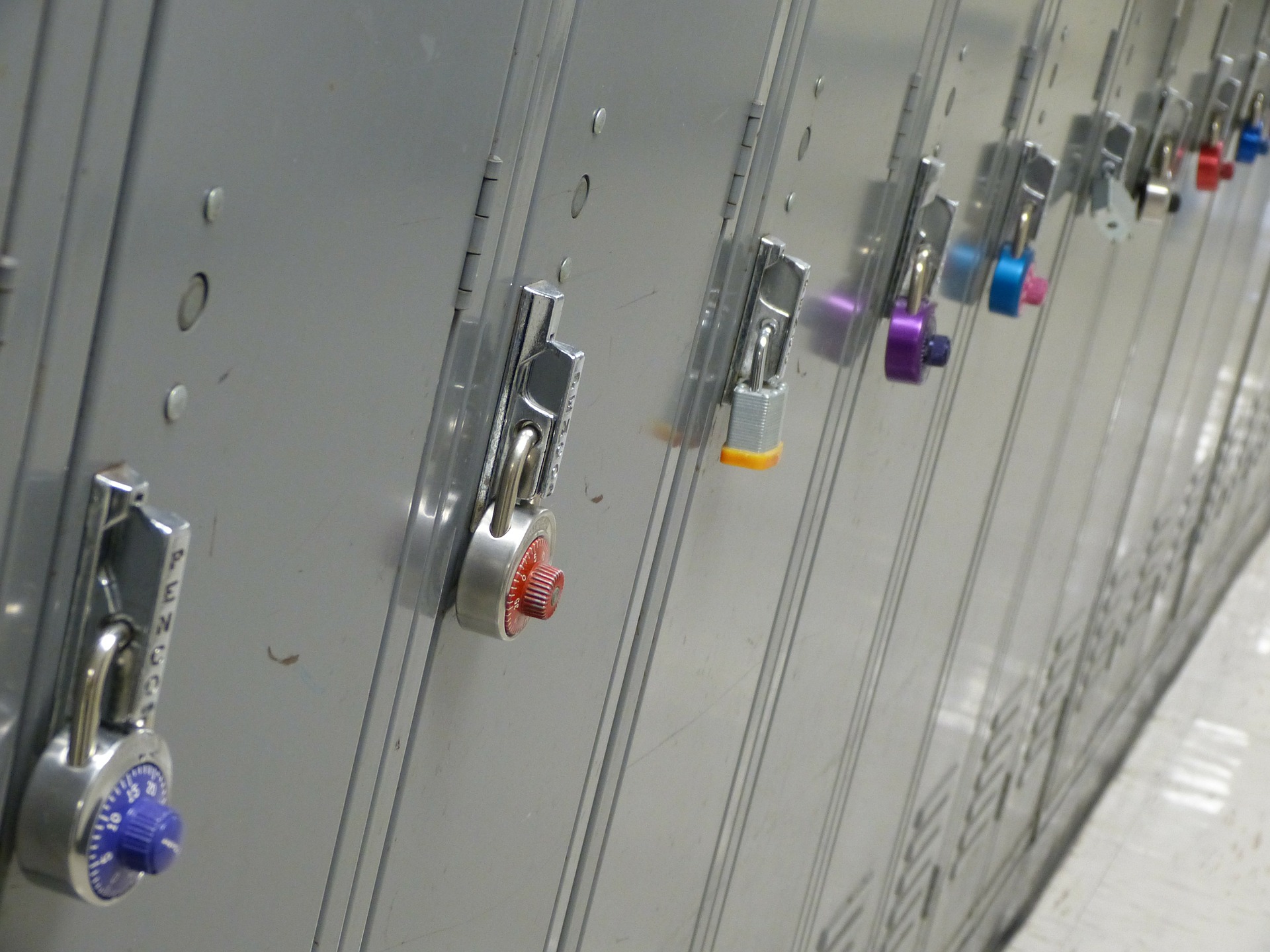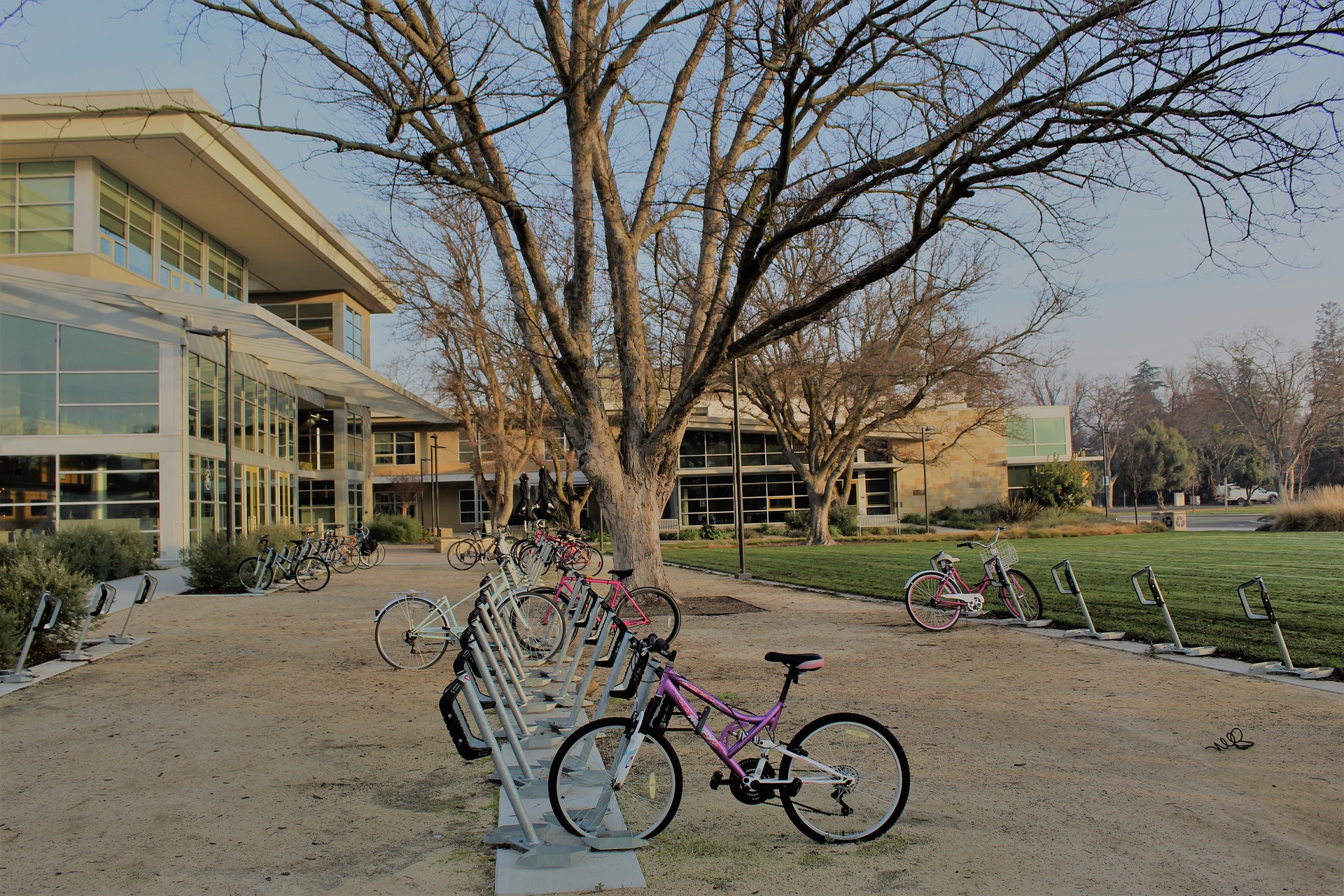
College Specific Supplemental Essays: Strategy/Tips
One of the reasons that we like students to have a sense of their college list when they start essay writing is that each essay does not exist in a vacuum. Everything submitted with a college application needs to work together to tell the fullest story possible about who you are, what you are all about, and the value you will add to the school that’s reading your application.
Complement your Personal Statement—don’t compete with it. You should aim to make sure all of your supplemental essays are as separate from the personal statement as possible. For instance, if my personal statement is about my passion for dance (my main extracurricular), and a school requires what we call a creativity supplement in The Complete College Essay Handbook, I would choose to write about something other than dance for the PS because I might want to focus on that in the supplement.
Present a rounded picture, even if you are narrow. Notice that I didn’t say be well-rounded. I don’t advise that! But imagine you apply to a school that requires two supplemental essays. One prompt clearly calls for an academic and intellectual interests (AII) essay, and the second is open-ended. You wouldn’t want to write a second AII essay for that school. Although college is first and foremost about academics, you want the opportunity to present as many parts of yourself as possible; go with any one of the other three types of supplemental essays that we outline in detail within The Complete College Essay Handbook! Every single college applicant should be able to write an impact and influence and community and identity essay.
Consider the school’s values. Sticking with the same example: if a school asks for two supplements and one prompt clearly calls for an AII essay, and the second is open-ended, in addition to writing a different type of supp, you should also take the school’s mission and values into consideration. For instance, since Jesuit schools like Santa Clara, Fordham, and the University of San Francisco tend to value service more than some secular schools, an impact and influence essay would be the best choice for the second prompt. Conversely, a liberal arts college with a long history of political activism, such as Wesleyan, Smith, or Oberlin, might react more favorably to a community and identity essay with an impact twist.
Use your best story. Imagine you have one just incredible story, and it fits perfectly into the impact and influence type. You write the essay—it’s great, and you love it! Then you realize that your top-choice school asks for a community and identity essay. What should you do? If your story is really that good, you are actually better off turning that impact and influence essay into a community and identity essay—even if it feels like a bit of a stretch. Admissions officers will remember how you made them feel—not that you didn’t answer the question quite as accurately as another applicant.
*Stay in the know! Subscribe*

February Action Plan – By Grade
Seniors:
- Once your applications have been submitted, track the status of each app online to ensure all of your application materials were received. Follow up with your school counselor ASAP if a college is missing your transcript or a letter of recommendation. Check your junk email folder regularly (daily), so you do not miss correspondence from colleges.
- Interviews! Sign up for interviews for all of your RD schools as soon as possible (where available/and if still open), if you have not done so already.
- For RD schools, consider writing interest letters to schools that welcome additional information. It might even be beneficial to have an extra LOR sent if you did not send one within the Common App.
Juniors:
- Keep prepping for standardized tests (ACT, SAT) and working hard in all of your classes; your grades this year are very important.
- Do you know what major(s) you will mark on your application? Do you have a clearly defined academic interest or set of interests for your college apps? This is a critical part of your application that should be determined now.
- Continue working on your resume. Some summer programs, internships, and interviewers may ask for this, so it’s useful to have it handy.
- Next summer is a wonderful opportunity to do something really meaningful, perhaps even fun, that will help you tell your story for college! Get those plans in place now.; there is still a lot of uncertainty because of COVID, so having multiple plans/irons in the fire is a good idea.
- Meet with your school counselor about your preliminary college list and go over your goals and plans for college visits/outreach.
- Take a college tour via CampusReel. Visiting campus in person is great, but you won’t be able to tour all of the schools on your initial list. Plus, formal campus tours can be a bit limiting! CampusReel is one of my favorite ways to get a real insider look at colleges.
- Tired of online tours? Sign up with one of our Peer Guides!!!
- Start to think about your senior year schedule. Do you know what you will be taking? Your senior classes should be the most challenging of your four years.
- If you’d like to start your Common App essay early, now is the time. If you are not working with us and would like to on your essays, reach out via the contact form. We help quite a few juniors finish their CA essays over the winter/spring, especially those with busy summer/fall schedules.
Sophomores and Freshmen:
- An impressive academic record is the most important admissions factor at most colleges. Work on creating smart study habits this year.
- Will you be starting your SAT or ACT prep this spring/summer? Begin to decide on a testing schedule and plan for how you will prepare for these exams.
- Many 2021 summer program applications are now open. Please begin thinking about your plans for summer and work on applications if needed.
- Start to think about next year’s course schedule. Do you know what you will be taking? Your classes next year should be more challenging than this year.
- Now is the time to build your academic profile for college, and this means pursuing what interests you academically and intellectually outside of your classes. Have you gotten more involved with any academic extracurricular activities? Have you thought about what you might want to major in? Think about ideas for new and different activities or how to get more involved in your favorite activity (academic and non-academic); exploration now will help you begin determining what you might want to study in college. A great place to start exploring your academic interests is Khan Academy or TedX.
- One way that your “story” is conveyed in your app is through your resume. Keep working on yours this month.
*Stay in the know! Subscribe*

January Action Plan – By Grade
Seniors:
- If you have RD applications due in mid-January that you did not submit, finish those up ASAP. The same goes for 2/1 deadline apps; there is no reason to wait!
-
The process of applying to college is not over after you press submit, so keep checking those online portals! Some schools require a mid-term grade report as noted on the application instructions (found online). It can be helpful to generate that list and let your school counselor know so it is sent as soon as grades are released. Also, many schools require it even after you have been admitted.
-
Grades are still important. Even one grade below your “normal” can be cause for concern; we’ve had students receive letters from schools after they had been admitted for a grade that “dipped” too far, threatening their admission could be taken away. Avoid this by maintaining your GPA.
- If you were deferred, work on your deferral letter this month and aim to send it mid-month.
- Thank everyone who helped you with your college process (especially your parents!), and take some time to enjoy what is left of high school between now and the rest of your admissions results.
Juniors:
- Testing. Once you are in prep-mode it is best to just keep going. The sooner you are finished testing, the sooner you can begin to finalize your college list. If you have a preliminary list, February break is a great time to visits colleges. Plan some visits.
- Confirm your summer plans. Next summer is a wonderful opportunity to do something really meaningful (and perhaps even fun!) that will help you tell your story to colleges.
- Start to think about your senior year schedule. Do you know what you will be taking? Your senior classes should be the most challenging of your four years.
- Resolve to check your email daily. Why? Colleges communicate with students via email. Most schools track whether you open emails and if you click through them; more engagement is seen as more interest (schools use interest in the admissions process). Make checking and engaging with any college-related email a habit in 2021.
Sophomores & Freshmen:
- Are you planning to take SAT subject tests in May or June? If so, come up with a prep plan now.
- An impressive academic record is the most important admissions factor at most colleges. Study hard.
- Speaking of courses, when do you pick your courses for 11th grade? Keep in mind you want to take a more rigorous course schedule each year.
- Now is the time to build your story for college! Have you gotten more involved with any of your extracurricular activities? Have you thought about what you might want to major in? A great place to start exploring your academic interests is Khan Academy.
- One way that your “story” is conveyed in your app is through your resume. Work on your resume now.
- Many 2021 summer program applications will open soon. Begin thinking about your plans for summer 2021 now so you can get ahead of deadlines and work on applications if needed.
- Replace one hour of social media, Netflix, or TV per week with time on Ted ED. Explore what intrigues you! Maybe it’s the history of cheese, particle physics, or what makes a poem a poem. Whatever you find interesting, take some time to be intentional about learning more in the new year!
*Stay in the know! Subscribe*

December Monthly Action Plan – By Grade
Seniors
• If you have been admitted to your top choice school and the process of applying has come to a close, congrats! Remember to maintain your GPA as schools don’t like to see your grade dip 🙂
• Track your application status. Once your applications have been submitted, be sure to periodically check your school-specific portals. Check your JUNK/SPAM email folder regularly (daily), so you do not miss correspondence from schools.
• Do the schools on your list require midterm grade reports? Check requirements online and talk to your school counselor about having them sent to colleges as needed. Also, re-share your RD list and make sure they know to send docs accordingly and far in advance of deadlines.
• It is difficult to write essays and complete applications between December 15 through January 1 because of the holidays, and…
• It’s always a good idea to submit apps ahead of deadlines. Aim to complete all RD/ED II apps by 12/15 so you are not in a time-crunch over the holidays and beat the RD app submission rush! Don’t forget to send official test scores, as required, to RD schools.
•If you still can, you should interview where possible…and consider which schools on your list you will send an interest/update letter to (no more than a month or so after you apply).
• If you were deferred, check back for a post on that soon (or look back to this time last year on the blog). If you need help creating your deferral letter and strategy, reach out to us.
Juniors
• Keep going on tours and attending info sessions (virtually of course!).
• Beyond academics, colleges look to admit students who take part in meaningful extracurricular activities, and summer is a great time to do something fun and meaningful that possibly explores what you might study in college. You might want to consider going beyond a pre-packaged program to something more self-initiated, like an independent study (will share more on this later in the month) or a purpose project.
• Start to think more about your major (or majors!) of interest and how your activities support this interest. Don’t forget: you should be exploring your interests outside of the classroom/school. But what if I do not know what my interests are?!?! Interests are not necessarily inherent, waiting to be found—they need to be cultivated. You have to get out into the world and work to determine them, and this can take time. We believe this is why it is important to start exploring early in high school. Explore through after-school programs, clubs at your school, a summer job, free classes online, by reading books, academic journals, or even watching Ted Talks. What we are getting at is, to really determine your interests, which might someday turn into your focus of study in college—or who knows, maybe even your passions later in life—you have to put some thought into it and do the work!
Sophomores & Freshmen
• An impressive academic record is the most important admissions factor at most colleges. How are your classes going? Review interim grade reports, and take stock of where you have room to improve.
• Beyond academics, colleges look to admit students who take part in meaningful extracurricular activities, and summer is a great time to do something fun and meaningful that possibly explores what you might study in college. You might want to consider a purpose project.
• As we excitedly approach the holiday season, think about how you might be able to help out those in need. The holidays can be a tough time for many families, and high schools and community centers often have food drives, toy drives, coat drives, etc. where you could give some of your time (or food or coats or toys!). Get involved, give back!
Enjoy the holidays and winter break! Take some time to relax.
*Stay in the know! Subscribe*

November Monthly Action Plan – By Grade
Seniors
- Keep writing apps, and make sure you are aware of early merit deadlines. Many are earlier than the RD deadline. Please do not save essay writing (or any part of this process) for the last minute. Submit applications as soon as possible!
- Track your application status. Once your applications have been submitted, you often are provided a “portal” from each school. You need to check this periodically (and be checking your email every day too!). You track the status of your app to ensure schools receive all of your application materials. Follow up with your school counselor ASAP if a school is missing your transcript or a letter of recommendation. *Do not expect portals to be updated automatically; give schools some time and do not immediately email if you sent something but it is not reflected in your portal. They don’t like getting emails asking why it is not updated when you just submitted…two days ago. Expect things to be slow this year as many schools are working in hybrid formats/not everyone is on campus at all schools, etc. Check your JUNK/SPAM email folder regularly (daily) so you do not miss correspondence from schools. This directly applies to the point above.
- Continue connecting with students, faculty, and staff. Remember to interview where applicable and take lots of notes. The information you gather is often perfect material for supplemental “Why School” essays and interest letters after you apply!
- Keep learning about the schools on your list. If your school hosts a college fair or individual college visits (virtually this year), please attend and meet the reps from the schools on your list. If you have already met them, it is still beneficial to stop by and say hello to demonstrate interest.
- Prep for interviews. Remember, if the schools on your list have on-campus or local interviews that are candidate-initiated, you must schedule them. Check the schools on your list. All of this information is provided on schools’ admissions websites.
- Have standardized test scores sent to all of the colleges on your list, if required; please send scores now so they arrive before RD deadlines. Some schools no longer require you to send officials, so please review each school’s application instructions to confirm. You can also review the list here: https://www.compassprep.
com/self-reporting-test- scores/ *there is no penalty if you send them and they are not required at the time you apply. And if you are applying test-optional, this does not apply to you!
Juniors
- If you look at your resume, are your academic interests clear? If yes, then your academic narrative is developed. A clear-cut academic narrative is beneficial; if you are undecided, then you should be exploring multiple interests. It is okay to be undecided as long as you are actively working on finding your niche. Please keep in mind that colleges aren’t looking for you to have it all 100% figured out; they are more concerned that you have interests and that you act on them (they want to see that you are intellectually curious and act on that curiosity!).
- Now is the time to plan the rest of junior year in terms of testing. When will you take the ACT or SAT? Should you take SAT Subject Tests? How many and which ones? When might you take them? Have you started formal test prep? Now is the time to start! If you need test prep resources, please reach out.
- Visit the websites of the schools you are interested in, and explore the admissions and academics pages. Start to think about your major(s) of interest and how the activities you are involved in support these interests. If possible, we want to determine what major(s) options you will list on your applications sooner rather than later so you can best prepare yourself for talking about these interests in your apps. If you need suggestions for activities based on your interests (for example, Coursera courses, independent projects, etc.), let us know—we help with this!
- Fall is a great time to visit colleges (virtually or in-person if you can), so plan some visits. Schools are offering many online opportunities, so take advantage of them now. Whether you can get to campus or not, take virtual tours via CampusReel, too.
- Do you have a plan in place to get more involved with any of your extracurricular activities? Look for leadership opportunities in school clubs and activities outside of school too. Remember, leadership is far more than leading a school club or sports team. Read more here (What is Leadership)!
Sophomores and Freshmen
- An impressive academic record is the most important admissions factor at most colleges. A rigorous course schedule shows intellectual curiosity, a willingness to challenge yourself, and that you are comfortable with hard work. Your number one priority this year should be your grades!
- If you haven’t done so already, get involved in activities in your area(s) of interest both inside and outside of school. Seek out opportunities to develop leadership roles. Depth, not breadth of experience, is key. Most colleges prefer to see fewer activities, but in which you are involved in a significant, meaningful way. Evidence of leadership, initiative, commitment, and meaningful engagement is important. Avoid the laundry list resume.
- Starting your own club, website, or community service project can show initiative, dedication, and leadership. If you are interested in creating an opportunity for yourself that is not available at your school or through a formal program, contact us, because we can help!
- Schedule a meeting to discuss your high school game plan with your guidance counselor. Your guidance or college counselor will write you a letter of recommendation when you apply to college, so make an effort to get to know them and for them to get to know you.
*Stay in the know! Subscribe*

October Monthly Action Plan – By Grade
Seniors
- Keep writing! If you started writing when apps opened this summer, you should have quite a few applications completed by this time. Please do not save essay writing (or any part of this process) for the last minute. Submit applications as soon as possible!
- Talk to your school counselor and letter of recommendation writers and make sure they are aware of your early deadlines.
- Continue connecting with students, faculty, and staff. Remember to interview where applicable and take lots of notes. The information you gather is often perfect material for supplemental “Why School” essays and interest letters after you apply!
- If your school hosts a college fair or individual college visits (virtually this year), please attend and meet the reps from the schools on your list. If you have already met them, it is still beneficial to stop by and say hello to demonstrate interest.
- Prep for interviews. Remember, if the schools on your list have on-campus or local interviews that are candidate-initiated, you must schedule them. Check the schools on your list. All of this information is provided on schools’ admissions websites.
- Have standardized test scores sent to all of the colleges on your list, if required; please send scores now so they arrive before deadlines. Some schools no longer require you to send officials, so please review each school’s application instructions to confirm. You can also review the list here: https://www.compassprep.
com/self-reporting-test- scores/ *there is no penalty if you send them and they are not required at the time you apply. And if you are applying test-optional, this does not apply to you!
Juniors
- If you look at your resume, are your academic interests clear? If yes, then your academic narrative is developed. A clear-cut academic narrative is beneficial; if you are undecided, then you should be exploring multiple interests. It is okay to be undecided as long as you are actively working on finding your niche. Please keep in mind that colleges aren’t looking for you to have it all 100% figured out; they are more concerned that you have interests and that you act on them (they want to see that you are intellectually curious and act on that curiosity!).
- Now is the time to plan the rest of junior year in terms of testing. When will you take the ACT or SAT? Should you take SAT Subject Tests? How many and which ones? When might you take them? Have you started formal test prep? Now is the time to start! If you need test prep resources, please reach out.
- Although we do not suggest formally prepping for the PSAT, if you would like to get a sense of what is on the test, you can read more here: https://
collegereadiness.collegeboard. org/psat-nmsqt-psat-10/ practice - Meet with your school guidance counselor. S/he will write one of your letters of recommendation for college, and it’s a much more personal letter if you know each other. Talk about your plans for this year and next year; let them know about your preliminary college list, any visits you have scheduled, and your testing plan.
- Visit the websites of the schools you are interested in, and explore the admissions and academics pages. Start to think about your major(s) of interest and how the activities you are involved in support these interests. If possible, we want to determine what major(s) options you will list on your applications sooner rather than later so you can best prepare yourself for talking about these interests in your apps. If you need suggestions for activities based on your interests (for example, Coursera courses, independent projects, etc.), let us know—we help with this!
- Fall is a great time to visit colleges (virtually or in-person if you can), so plan some visits. Schools are offering many online opportunities, so take advantage of them now. Whether you can get to campus or not, take virtual tours via CampusReel, too.
- Do you have a plan in place to get more involved with any of your extracurricular activities? Look for leadership opportunities in school clubs and activities outside of school too. Remember, leadership is far more than leading a school club or sports team. Read more here (What is Leadership)!
Sophomores and Freshmen
- An impressive academic record is the most important admissions factor at most colleges. A rigorous course schedule shows intellectual curiosity, a willingness to challenge yourself, and that you are comfortable with hard work. Your number one priority this year should be your grades!
- If you haven’t done so already, get involved in activities in your area(s) of interest both inside and outside of school. Seek out opportunities to develop leadership roles. Depth, not breadth of experience, is key. Most colleges prefer to see fewer activities, but in which you are involved in a significant, meaningful way. Evidence of leadership, initiative, commitment, and meaningful engagement is important. Avoid the laundry list resume.
- Starting your own club, website, or community service project can show initiative, dedication, and leadership. If you are interested in creating an opportunity for yourself that is not available at your school or through a formal program, contact us, because we can help!
- Many schools allow 10th graders to take a practice PSAT. The experience of taking the PSAT as a sophomore will give you a sense of what to expect in future exams. However, you don’t need to prep for it.
- Schedule a meeting to discuss your high school game plan with your guidance counselor. Your guidance or college counselor will write you a letter of recommendation when you apply to college, so make an effort to get to know them and for them to get to know you.
*Stay in the know! Subscribe*

September Monthly Action Plan – By Grade
Seniors
- Welcome to senior year! Your grades this fall are important, but you also need to keep making progress on your apps and complete any remaining testing if applicable. It might feel like a lot to juggle, but you’ve got this! My biggest piece of advice is to keep moving forward.
- Meet with your school counselor to discuss your counselor letter, finalize your college list, confirm your teacher recommendations, and go over your application strategy. ost early deadlines are November 1 or later, but a few schools have mid-October deadlines. Plan on submitting ALL applications well in advance of deadlines. To me, well in advance means at least 1-3 weeks ahead of time.
- Keep writing! If you started essays this summer, you should have quite a few completed by this time. Please do not save essay writing (or any part of this process) for the last minute.
- Talk to your letter of recommendation writers and make sure they are aware of your early deadlines.
- Continue connecting with students, faculty, and staff. Remember to interview where applicable and take lots of notes. The information you gather is often perfect material for supplemental “Why School” essays and interest letters after you apply!
- If your school hosts a college fair or individual college visits (even virtually!), please attend and meet the reps from the schools on your list. If you have already met them, it is still beneficial to stop by and say hello to demonstrate interest.
- Continue to visit colleges virtually and show interest!
- Prep for interviews. Remember, if the schools on your list have on-campus or local interviews that are candidate-initiated, you must schedule them. Check the schools on your list. All of this information is provided on schools’ admissions websites.
- Remember to send schools your official test scores (ACT, SAT, SAT Subject Tests). Self-reported scores on applications are not official scores.
- Remember to read the application instructions for the schools on your list.
- Keep writing essays!
Juniors
- If your school hosts a college fair or individual college visits (virtually this year in many cases!), please attend and meet the reps from the schools that might be on your list. Be sure to send them a follow-up email thanking them for their time.
- Now is the time to plan the rest of junior year in terms of testing. When will you take the ACT or SAT? Will you need SAT Subject Tests? How many and which ones? When might you take them? Have you started formal test prep? Now is the time to start!
- Although I do not suggest formally prepping for the PSAT, if you would like to get a sense of what is on the test, you can read more here: https://
collegereadiness.collegeboard. org/psat-nmsqt-psat-10/ practice - Meet with your school guidance counselor. S/he will write one of your letters of recommendation for college, and it’s a much more personal letter if you know each other. Talk about your plans for this year and next year; let them know about your preliminary college list, any visits you have scheduled, and your testing plan.
- Visit the websites of the schools you are interested in, and explore the admissions and academics pages. Start to think about your major(s) of interest and how the activities you are involved in support these interests. If possible, we want to determine what major(s) options you will list on your applications sooner rather than later so you can best prepare yourself for talking about these interests in your apps. If you need suggestions for activities based on your interests (for example, Coursera courses, independent projects, etc.), let us know—we help with this!
- Fall is a great time to visit colleges, so plan at least one virtual tour per week!
- Do you have a plan in place to get more involved with any of your extracurricular activities? Look for leadership opportunities in school clubs and activities outside of school too. Remember, leadership is far more than leading a school club or sports team.
Sophomores and Freshmen
- An impressive academic record is the most important admissions factor at most colleges. A rigorous course schedule shows intellectual curiosity, a willingness to challenge yourself, and that you are comfortable with hard work. Your number one priority this year should be your grades!
- If you haven’t done so already, get involved in activities in your area(s) of interest both inside and outside of school. Most colleges prefer to see fewer activities, but in which you are involved in a significant, meaningful way.
- Many schools allow 10th graders to take a practice PSAT. The experience of taking the PSAT as a sophomore will give you a sense of what to expect on future exams. However, you don’t need to prep for it.
- Schedule a meeting to discuss your high school game plan with your guidance counselor. Talk to them about how the first few weeks of classes go, and if you need to make any adjustments to your schedule.
- Independent reading matters. Regular reading of articles and editorials (e.g. New York Times, Wall Street Journal, The Economist) in addition to studying vocabulary lists and signing up for “Word/Article/SAT Question of the Day” can have a significant positive impact on standardized testing and your writing. Colleges love readers!
*Stay in the know! Subscribe*

August Monthly Action Plan – By Grade
We will be taking a break from the blog for most of August through Labor Day weekend, posting only when very important news calls for it. We are focusing on making sure our seniors start school with most of their app work complete, so if you are a rising senior and have not started, now is the time!
Seniors
- The Common App refresh is complete. If you opened a Common App account before August 1, please log in to “roll” over the base data. Please add schools to your CA Dashboard and begin filling out the school-specific sections; this is where you can also see supp essays and should be double-checking all prompts as you…
- Continue to complete essays! And as you do, now is an excellent time to start thinking about your application strategy. Even if you are not finished with testing, you’ll want to complete applications this summer.
- It might seem like a silly piece of advice, but many students are not aware that every college has a set of application instructions that are not located on the online application. Locate and read them for every school on your list before tackling the application process.
- Colleges may not open for tours before you submit early applications (in October or earlier). Spend time taking virtual tours and connecting with and learning about colleges in other ways (reaching out to current students and alumni is just one example!).
- Many colleges don’t proactively ask for online resources, but you may have an interest in creating a digital portfolio (LinkedIn, SoundCloud, GitHub, YouTube channel, personal website, and/or blog) to supplement your other application materials.
- Touch base with the teachers writing your letters of recommendation. They will be very busy once school starts; be proactive and drop them a note now reiterating your thanks, as well as letting them know when you plan to submit your first apps (this can be far in advance of actual deadlines, for example, in August or September if testing is complete).
Juniors & Sophomores
- Work on a purpose project. A purpose project is one that you design and implement (with our help if you’d like!), which taps into your interests and talents (the things you love, that bring you joy, that you want to study in college, or that you feel could best help your school, community, or the world); it is connected to a deeper purpose and has tangible outcomes that you set. Past projects from students include writing a children’s book, completing a literature review or book challenge, creating a trailer for a documentary (and founding a non-profit, a school club, an app), spearheading an innovative volunteer event, fundraising for an organization in a creative way (selling artwork, an Etsy shop, etc.), and hosting a yearly beach clean-up. The possibilities are endless, and colleges love seeing students take part in meaningful, self-directed work. There is still time to design and begin to implement one. Reach out to us if you have questions or want support!
- Now is the time to plan for testing. When will you take the ACT or SAT? Will you need SAT Subject Tests? Please contact us if you would like suggestions for tutors and other prep resources, or with your testing plan if you already have one in place and have not shared it with me yet.
- This year, make a plan to get more involved with 1-2 main extracurricular activities (bonus if these support your academic interests). Look for leadership opportunities, but also keep in mind demonstrating leadership goes beyond formally leading a club or team.
- Start to think about your major of interest (and how the activities you are involved in support it!). You 100% should be exploring your academic interests outside of your coursework.
- Begin to visit the websites of the schools on your list. Explore the admissions and departmental/academic pages. Attend virtual tours and information sessions; there are so many options, start now!
Freshmen
- Relax. Enjoy the final month of summer before high school begins!
*Stay in the know! Subscribe*

June Monthly Action Plan – By Grade
What a month! We took a break on the blog from June 1-8, and we are now back with our regularly scheduled programming. Please find the June MAP below, and be sure to reach out to us via the contact form is you have specific questions about what you or your student can be working on this month.
Seniors
- Congrats, grads! If you love graduation speeches as much as me, check out a few of my favorites as you celebrate this amazing accomplishment:
-
-
- George Saunders, Syracuse (takeaway: regretting failures of kindness – be kind)
- Steve Jobs, Stanford (takeaway: stay hungry, stay foolish, listen to and follow your heart)
-
-
Juniors
- Obtain and review your final transcript (all grades from 9, 10, 11) ASAP after grades post. This is important so you can have your school correct any errors, and so you know exactly what colleges will see when they get your transcript.
- Now is an excellent time to start thinking about your application strategy. Even if you are not finished with testing, you’ll want to complete applications this summer.
- It might seem like a silly piece of advice, but many students are not aware that every college has a set of application instructions that are not located on the online application. Locate and read them for every school on your list before tackling the application process.
- Colleges may not open for tours before you submit early applications (in October or earlier). Spend time taking virtual tours and connecting with and learning about colleges in other ways (reaching out to current students and alumni is just one example!).
- As you begin writing essays this month, open a Common App account and begin filling out the base data (Profile, Family, Education, Testing, Activities).
- Many colleges don’t proactively ask for online resources, but you may have an interest in creating a digital portfolio (LinkedIn, SoundCloud, GitHub, YouTube channel, personal website, and/or blog) to supplement your other application materials.
Sophomores & Freshmen
-
- Work on a purpose project this summer!
- A purpose project is one that you design and implement (with our help if you’d like!), which taps into your interests and talents (the things you love, that bring you joy, that you want to study in college, or that you feel could best help your school, community, or the world); it is connected to a deeper purpose and has tangible outcomes that you set.
- Past projects from students include writing a children’s book, completing a literature review or book challenge, creating a trailer for a documentary (and founding a non-profit, a school club, an app), spearheading an innovative volunteer event, fundraising for an organization in a creative way (selling artwork, an Etsy shop, etc.), and hosting a yearly beach clean-up. The possibilities are endless, and colleges love seeing students take part in meaningful, self-directed work.
*Stay in the know! Subscribe*
